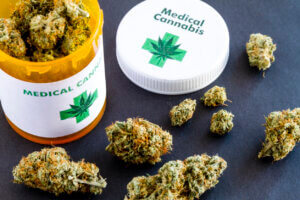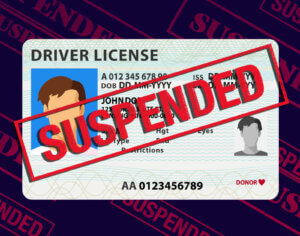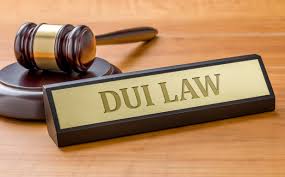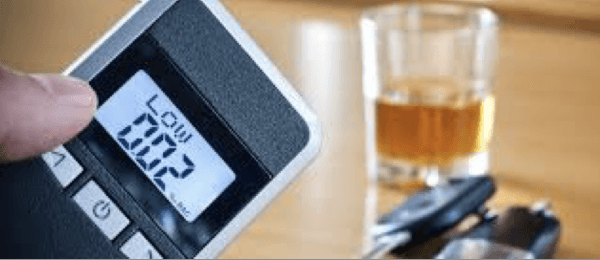If you were charged with DUI in PA for the first time, you may be wondering about the possible penalties if you are convicted.
Attorney Justin Ketchel explains your rights…
 Driving under the influence (DUI) is taken very seriously in Pennsylvania, and yes, you can go to jail for it. The severity of the penalties, including jail time, depends on various factors like your Blood Alcohol Content (BAC), whether it’s a first DUI or second DUI, or a repeat DUI offense, whether there were drugs or a controlled substance involved, and if there are aggravating circumstances like accidents, injuries, homicide by vehicle, or refusal to take a chemical test.
Driving under the influence (DUI) is taken very seriously in Pennsylvania, and yes, you can go to jail for it. The severity of the penalties, including jail time, depends on various factors like your Blood Alcohol Content (BAC), whether it’s a first DUI or second DUI, or a repeat DUI offense, whether there were drugs or a controlled substance involved, and if there are aggravating circumstances like accidents, injuries, homicide by vehicle, or refusal to take a chemical test.
Below, you will find specifics on DUI penalties in Pennsylvania and when or if jail time becomes a real possibility for those facing DUI charges.
Pennsylvania DUI Laws: The Basics
In Pennsylvania, DUI offenses are governed by a tiered penalty system based on BAC levels and the number of prior offenses.
Pennsylvania categorizes DUI offenses into tiers as follows:
- General Impairment: BAC of 0.08% to 0.099%
- High Rate of Alcohol: BAC of 0.10% to 0.159%
- Highest Rate of Alcohol: BAC of 0.16% and above, or any DUI involving drugs
Pennsylvania follows an implied consent law, which means that by driving in the state, you’ve implicitly agreed to take a chemical test if law enforcement suspects you of driving under the influence. Refusing to take a blood or chemical test can lead to separate penalties, including license suspension and, potentially, jail time.
Read more information about Pennsylvania, DUI, and your license and filing a license suspension appeal in Pennsylvania.
Call Ketchel Law at 412-456-4221 for a free legal consultation about your DUI case.
First DUI Offense: Will You Go to Jail?
For first-time offenders, the possibility of jail time largely depends on your BAC level at the time of the arrest. While these are the general sentencing guidelines of the Pennsylvania legal code, there are always exceptions and possible programs, like the ARD program for first DUI offenders, that can significantly reduce penalties and make it possible to expunge your charges.
In addition, these guidelines are for a DUI conviction – before a conviction, there is always a chance to have your charges reduced or even dropped altogether. That is why you should always at least speak with an experienced and knowledgeable DUI Attorney BEFORE any hearings. Call Attorney Ketchel today for a free personal consultation about your case.
1. General Impairment (BAC of 0.08% to 0.099%)
For those with a BAC between 0.08% and 0.099%, the penalties are the least severe, but the possibility of jail time is still present, especially if there are aggravating factors.
- Penalties:
- No minimum jail time is required;
- A misdemeanor on your record;
- Six months mandatory minimum probation;
- $300 fine;
- Mandatory alcohol safety school;
- Mandatory court-ordered treatment.
Although jail time isn’t mandated for first-time general impairment offenders, factors such as causing an accident or having minors in the vehicle could lead to more severe penalties, including incarceration.
2. High Rate of Alcohol (BAC of 0.10% to 0.159%)
If your BAC is between 0.10% and 0.159%, the penalties escalate, and the law begins to impose mandatory jail time, even for first offenders.
- Penalties for a first DUI at High Tier:
- 48 consecutive hours minimum imprisonment and no more than six months maximum;
- A misdemeanor on your record;
- $500 to $5,000 fine;
- A 12-month license suspension;
- Attend Alcohol Highway Safety School;
- Mandatory Treatment;
- Pending CRN, full assessment, and compliance with D&A treatment as part of sentencing.
At this level, jail time is mandatory. A minimum of 48 hours behind bars is required, although it’s possible to face longer sentences depending on the specific circumstances.
3. Highest Rate of Alcohol (BAC of 0.16% and above) or Drug DUI
This is the most severe category for DUI in Pennsylvania. A first offense with a BAC of 0.16% or higher comes with harsher penalties, including a significant likelihood of jail time.
- Penalties for a First DUI at the Highest Tier:
- 72 consecutive hours minimum imprisonment and no more than six months maximum;
- A misdemeanor on your record;
- $1,000 to $5,000 fine;
- A 12-month license suspension;
- Attend Alcohol Highway Safety School;
- Mandatory Treatment;
- Mandatory full D&A assessment and compliance with D&A treatment as a condition of sentencing.
If you were charged with DUI in Western PA, call Ketchel Law at 412-456-1221 for a free consultation.
PENNSYLVANIA DUI LAWYERS: KETCHEL LAW
Call 412-456-1221 for a free consultation
Our #1 goal is to have your charges dismissed and your record clean.
Repeat DUI Offenses Mean Jail Time is More Likely
The penalties for DUI offenses in Pennsylvania become significantly harsher for second or third-time DUI offenders.
For second DUI offenses, the jail time increases significantly. Even with a general impairment DUI, you face a mandatory five days behind bars, while for the highest rate of alcohol, you’re looking at 90 days minimum.
With a third DUI offense, the penalties are even more severe, from a mandatory ten days to two years in jail for a general impairment and up to five years in prison for the highest rate, which is also now considered a felony.
Aggravating Factors that Could Increase Jail Time
Certain circumstances can increase penalties, including additional jail time, even for first-time offenders. Some of the common aggravating factors include:
- DUI with a Minor in the Vehicle: If you are caught driving under the influence with a minor in your car, penalties are automatically more severe, including higher fines and longer jail time.
- Causing an Accident or Injury: A DUI that results in an accident, especially if someone is injured or killed, will lead to significantly harsher penalties. Vehicular homicide charges can result in several years in prison.
- Refusal to Submit to a Chemical Test: Refusing to take a breathalyzer or blood test can lead to enhanced penalties, including longer license suspension and possible jail time.
How Can Ketchel Law Help?
For first-time offenders with a BAC below 0.10%, jail time is unlikely, but it becomes mandatory for those with a BAC above 0.10% or for repeat offenders.
If you’ve been charged with a DUI, it’s important to understand the potential consequences and consult with a knowledgeable DUI attorney like those at Ketchel Law to explore your options for minimizing the penalties.
Our experienced and highly rated Pittsburgh DUI Attorneys will fight for your case to be dismissed or for the charges to be significantly reduced.
If you were charged with DUI in Western Pennsylvania, call Ketchel Law at 412-456-1221 for a free consultation.
PENNSYLVANIA DUI LAWYERS
KETCHEL LAW
Call 412-456-1221 for a free consultation
If you have been charged with a DUI in Pennsylvania, contact Ketchel Law today.
Our number one goal is to have your charges dismissed and your record clean.
Learn more about DUI Laws in Pennsylvania
- First-time DUI Offense
- Refusing a Breathalyzer
- Second DUI Offense
- DUI Marijuana
- DUI Arrest in PA with a BAC over .16
- The Penalties for a DUI Conviction in PA
- A DUI Arrest and Your License
- DUI Court Process
- The Pennsylvania ARD Program
_____________________
FREE LEGAL CONSULTATION
We offer free legal consultations to anyone charged with a crime in Western Pennsylvania. Call us at 412-456-1221 today to find out how we can help defend your rights.
Learn more about Ketchel Law:









